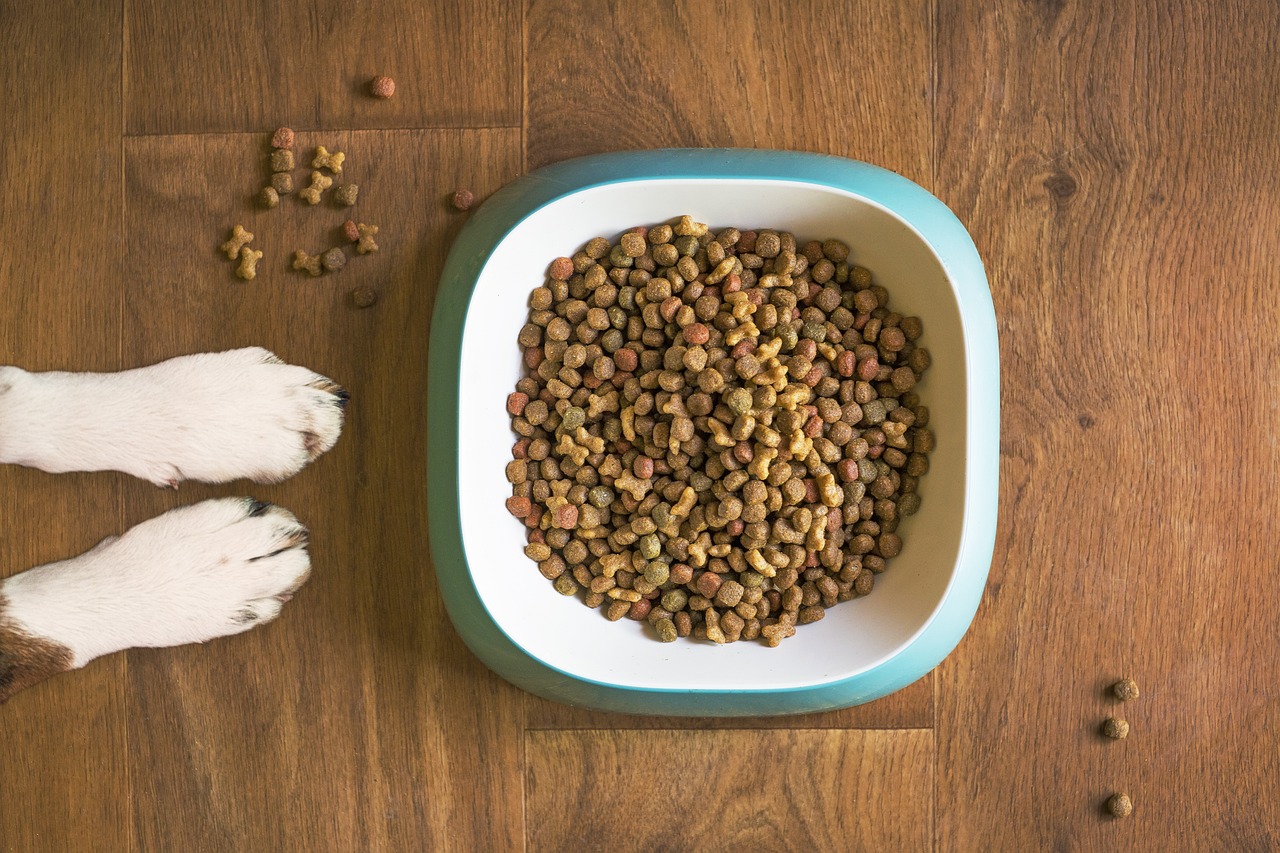A happy, energetic dog starts with a healthy gut. Good digestion isn’t just about avoiding an upset stomach—it’s the cornerstone of your furry friend’s overall well-being.
When dogs digest food properly, they absorb vital nutrients that fuel their body, boost their immune system, and even enhance their mood.
In this comprehensive listicle, we dive into 15 proven ways to improve your dog’s digestion, backed by expert advice and trusted sources. Whether your pup is experiencing minor digestive issues or you’re simply looking to optimize their diet, these tips will help you support your dog’s gut health for a vibrant, active life.
In this guide, we cover everything from dietary adjustments and natural supplements to lifestyle changes and veterinarian consultations.
We’ll break down each strategy into actionable steps, complete with bullet points, expert recommendations, and external resources you can trust. Let’s explore how you can naturally enhance your dog’s digestion and ensure they live their best life!
Table of Contents
1. Feed a Balanced, High-Quality Diet
A balanced, nutrient-rich diet is the foundation of great digestion. Just like humans, dogs thrive on food that is tailored to their specific needs. High-quality dog food, rich in natural ingredients and free from unnecessary fillers, can dramatically improve your dog’s digestive health.
Key Considerations:
- Nutrient Density: Look for foods with high-quality protein sources, essential fatty acids, vitamins, and minerals.
- Limited Fillers: Avoid diets that rely heavily on corn, soy, or wheat, as these can be hard for some dogs to digest.
- Grain-Free Options: For dogs with grain sensitivities, consider grain-free or limited-ingredient diets that emphasize digestible carbohydrates like sweet potatoes or peas.
- Preservative-Free: Foods with natural preservatives (like vitamins E and C) are preferable to synthetic ones that might upset your dog’s stomach.
For further insights on selecting the right food for your dog, check out the American Kennel Club’s nutrition guide
2. Incorporate Probiotics Into Their Diet
Probiotics are live bacteria that support a healthy gut microbiome. They work by balancing the intestinal flora, enhancing the digestion of food, and boosting immune function.
Benefits of Probiotics:
- Improved Digestion: Helps break down food more efficiently.
- Enhanced Nutrient Absorption: Ensures your dog gets the maximum benefit from their food.
- Immune Support: A balanced gut flora contributes to a stronger immune system.
- Reduction in Diarrhea: Many dogs experience fewer digestive upsets when probiotics are included in their diet.
How to Choose Probiotics:
- Look for supplements specifically formulated for dogs.
- Opt for products with multiple strains of beneficial bacteria.
- Follow dosage instructions carefully to avoid over-supplementation.
For more detailed advice on using probiotics for your dog’s health, visit PetMD’s guide on canine probiotics
3. Add Prebiotics and Digestive Enzymes
While probiotics introduce good bacteria into the gut, prebiotics serves as food for these beneficial microbes. Additionally, digestive enzymes can help break down food more effectively, ensuring that nutrients are fully absorbed.
Prebiotics:
- Function: Stimulate the growth of beneficial bacteria in the digestive tract.
- Sources: Foods like chicory root, bananas, and whole grains can be natural prebiotic sources.
- Supplement Options: Consider adding a prebiotic supplement to your dog’s diet if natural food sources are limited.
Digestive Enzymes:
- Role: Assist in breaking down proteins, fats, and carbohydrates.
- Common Enzymes: Look for supplements that include amylase, lipase, and protease.
- Benefits: Can be particularly helpful for older dogs or those with compromised digestive systems.
By combining prebiotics with probiotics (often referred to as synbiotics), you can create a powerful synergy that promotes a healthy digestive tract. Consult your veterinarian before adding any new supplements to your dog’s regimen.
4. Include Fiber-Rich Foods
Fiber is essential for a healthy digestive system, as it helps regulate bowel movements and supports the growth of beneficial bacteria in the gut.
Why Fiber Matters:
- Regulates Digestion: Helps prevent constipation and diarrhea by absorbing excess water.
- Supports Gut Health: A balanced fiber intake nourishes the beneficial bacteria in your dog’s digestive system.
- Weight Management: Fiber-rich diets can help your dog feel fuller longer, aiding in weight control.
Fiber Sources for Dogs:
- Pumpkin: A natural source of both soluble and insoluble fiber.
- Sweet Potatoes: Provide essential vitamins and fiber.
- Carrots: Crunchy, low-calorie snacks that are high in fiber.
- Green Beans: Offer both fiber and vitamins without adding many calories.
For an in-depth look at how fiber impacts your dog’s digestion, you can refer to articles on digestive health at VCA Animal Hospitals
5. Ensure Fresh and Clean Water Is Always Available

Hydration plays a critical role in digestion. Water helps break down food, transport nutrients, and flush out toxins from your dog’s system.
Tips for Proper Hydration:
- Multiple Water Stations: Place water bowls in different areas of your home to encourage frequent drinking.
- Regular Refills: Change the water at least once a day to keep it fresh.
- Clean Bowls: Wash your dog’s water bowl regularly to prevent bacterial growth.
- Consider a Water Fountain: Many dogs enjoy drinking from a moving water source, and water fountains can stimulate them to drink more.
Keeping your dog hydrated not only aids digestion but also contributes to their overall health and energy levels.
6. Establish a Regular Feeding Schedule
Feeding your dog on a consistent schedule can regulate their digestive system and prevent overeating or irregular digestion.
Benefits of a Regular Feeding Schedule:
- Predictable Digestion: Helps maintain a stable digestive process.
- Prevents Bloating: Regular meals reduce the risk of bloating, which can be dangerous, especially in deep-chested breeds.
- Eases Transition: A set schedule makes it easier to introduce new foods or supplements gradually.
Practical Tips:
- Set Specific Meal Times: Feed your dog at the same times each day.
- Portion Control: Use measuring cups to ensure your dog receives the right amount of food.
- Monitor Eating Habits: Keep an eye on how quickly your dog eats; a slow feeder bowl can help prevent gulping.
7. Avoid Table Scraps and Overfeeding
While it might be tempting to share your meal with your dog, table scraps can upset their digestive system and lead to weight gain or nutritional imbalances.
Why to Avoid Table Scraps:
- Unbalanced Nutrition: Human food often contains spices, salt, and fats that are not ideal for dogs.
- Risk of Obesity: Extra calories from table scraps can contribute to obesity.
- Digestive Upsets: Foods that are rich, spicy, or fatty can trigger gastrointestinal distress.
Healthy Alternatives:
- Dog-Friendly Snacks: Choose treats specifically designed for canine digestion.
- Fresh Vegetables: Offer small pieces of dog-safe vegetables like carrots or green beans.
Maintaining portion control and avoiding non-dog-friendly foods can keep your pet’s digestion on track.
8. Introduce Wet Food as a Digestion Booster
Wet food can be easier for some dogs to digest than dry kibble. Its higher moisture content aids in digestion and can be particularly beneficial for older dogs or those with dental issues.
Advantages of Wet Food:
- Improved Hydration: Extra moisture supports overall digestion.
- Easier Chewing: Ideal for dogs with dental issues or missing teeth.
- Enhanced Palatability: Often more appealing to picky eaters, encouraging them to eat properly.
When to Transition:
- Gradual Introduction: Slowly mix wet food with dry food to avoid abrupt dietary changes.
- Monitor for Changes: Observe your dog’s stool consistency and energy levels during the transition.
For more detailed insights on wet versus dry food, visit PetMD’s canine nutrition section
9. Monitor and Adjust Their Food Based on Age and Activity
Just like humans, a dog’s dietary needs change over time. Puppies, adult dogs, and seniors all have different nutritional requirements that affect digestion.
Age-Related Dietary Tips:
- Puppies: Require energy-dense food with higher protein and fat to support rapid growth.
- Adult Dogs: Need balanced nutrition that supports sustained energy and a healthy weight.
- Senior Dogs: Often benefit from easily digestible proteins and fewer calories, as their metabolism slows down.
Activity Level Considerations:
- High-Energy Dogs: May require more protein and fat to fuel their active lifestyles.
- Less Active Dogs: Should have controlled portions to prevent weight gain, which can impair digestion.
Regularly reviewing your dog’s diet in relation to their age and activity level will help ensure that their digestive system functions optimally.
10. Regular Exercise to Support Digestion
Exercise isn’t just for maintaining a healthy weight—it also plays a crucial role in promoting effective digestion. Physical activity stimulates the muscles in your dog’s digestive tract, encouraging food to move through the system smoothly.
How Exercise Benefits Digestion:
- Stimulates Bowel Movements: Regular walks and playtime help prevent constipation.
- Reduces Bloating: Physical activity can help alleviate gas buildup and discomfort.
- Improves Overall Health: An active lifestyle supports a robust immune system and a balanced gut.
Exercise Ideas for Dogs:
- Daily Walks: A brisk 30-minute walk can work wonders.
- Interactive Play: Games like fetch or tug-of-war not only exercise your dog but also strengthen your bond.
- Agility Training: Engaging in agility courses can provide both physical and mental stimulation.
Incorporate regular exercise into your dog’s daily routine to support not just digestion, but overall health and well-being.
11. Consider Adding Digestive Supplements and Herbal Aids
Digestive supplements can be a valuable addition to your dog’s diet, particularly if they experience occasional stomach upsets or have sensitive digestive systems. In addition to probiotics and enzymes, certain herbal supplements have shown promise in aiding digestion.
Popular Digestive Supplements:
- Ginger: Known for its anti-nausea properties, ginger can soothe an upset stomach.
- Chamomile: This herb may help reduce inflammation and calm the digestive tract.
- Slippery Elm: Often used to alleviate gastrointestinal irritation and promote healing of the gut lining.
- Peppermint: Can help with gas and bloating, offering a natural digestive aid.
Tips for Using Supplements:
- Consult Your Vet: Always discuss any new supplement with your veterinarian to ensure it’s safe for your dog.
- Follow Dosage Guidelines: Over-supplementing can do more harm than good.
- Monitor Your Dog: Observe for any changes in behavior or digestion after introducing a new supplement.
These natural aids, when used appropriately, can complement your dog’s overall dietary plan and improve digestion.
12. Rotate Protein Sources to Prevent Allergies
Dogs can develop sensitivities or allergies to certain protein sources over time. Rotating proteins not only keeps your dog’s diet interesting but can also prevent digestive issues related to food sensitivities.
Benefits of Protein Rotation:
- Reduces Allergy Risks: Prevents the buildup of antibodies to one type of protein.
- Enhances Nutrient Variety: Different proteins provide varying amino acids and nutrients.
- Supports Gut Health: A varied diet can promote a balanced gut microbiome.
Common Protein Sources to Consider:
- Chicken: A lean, easily digestible option.
- Beef: Rich in iron and other essential nutrients.
- Lamb: Often recommended for dogs with sensitive stomachs.
- Fish: Provides omega-3 fatty acids which are great for overall health.
- Turkey: A lean alternative that’s often well-tolerated.
When rotating proteins, introduce new protein sources gradually to avoid any sudden digestive upset.
13. Manage Stress and Anxiety
Stress and anxiety aren’t just mental issues—they can directly impact your dog’s digestion. A stressed dog may experience gastrointestinal discomfort, diarrhea, or a slowed digestive process.
How to Reduce Stress:
- Regular Exercise: Physical activity helps reduce anxiety.
- Calm Environment: Ensure your dog has a quiet, comfortable space to relax.
- Consistent Routine: A predictable daily routine can reduce anxiety.
- Mental Stimulation: Engage your dog with puzzle toys or training sessions to keep their mind active.
- Quality Time: Spend time bonding with your dog through gentle play or even massage.
By addressing stress, you’re not only improving your dog’s digestion but also contributing to their overall emotional and physical well-being.
14. Gradually Introduce New Foods
Sudden changes in your dog’s diet can lead to digestive upset, including diarrhea or vomiting. When introducing a new food, always transition slowly.
Transitioning Tips:
- Mix Gradually: Start by mixing 10-20% of the new food with the current food, gradually increasing the proportion over 7-10 days.
- Monitor Reactions: Watch for any signs of digestive distress such as loose stools or lethargy.
- Keep a Food Diary: Track changes in your dog’s digestion to identify which foods work best.
- Consult Your Vet: Especially if your dog has a sensitive stomach or pre-existing conditions.
This gradual approach allows your dog’s digestive system to adjust and minimizes the risk of gastrointestinal issues.
15. Consult with Your Veterinarian Regularly
While these tips can go a long way in improving your dog’s digestion, nothing replaces the expertise of your veterinarian. Regular check-ups ensure that your dog’s digestive issues aren’t symptoms of a larger problem.
When to Visit the Vet:
- Persistent Digestive Issues: If your dog experiences chronic diarrhea, vomiting, or weight loss.
- Dietary Changes: Before making major changes to your dog’s diet or introducing new supplements.
- Allergy Concerns: If you suspect a food allergy or intolerance.
- General Health Check-Ups: Regular wellness visits to ensure overall health and early detection of any issues.
A good veterinarian can help tailor a diet plan, recommend supplements, and monitor your dog’s health over time. For additional resources on dog digestive health, the Merck Veterinary Manual is a trusted reference for both pet owners and professionals.
Wrapping Up: A Healthier Gut for a Happier Dog
Improving your dog’s digestion is a multifaceted process that requires attention to diet, lifestyle, and overall health. By implementing these 15 strategies, you’re not only supporting your dog’s digestive system but also enhancing their energy levels, immunity, and overall quality of life.
Key Takeaways:
- Balanced Diet: Prioritize high-quality, nutrient-dense foods.
- Supplements: Consider probiotics, prebiotics, and digestive enzymes.
- Lifestyle: Regular exercise, stress management, and a consistent feeding schedule are essential.
- Veterinary Guidance: Regular check-ups and professional advice are crucial for long-term health.
Every dog is unique, so it may take some trial and error to find the perfect balance. However, with patience and careful observation, you can craft a diet and lifestyle that supports a robust digestive system—ensuring your furry friend remains happy and healthy for years to come.
Join the Conversation!
We’d love to hear from you! What strategies have you found effective in improving your dog’s digestion? Have you tried any of the tips listed above? Share your experiences and tips in the comments below, and don’t hesitate to ask any questions you might have. If you found this article helpful, consider sharing it on social media or signing up for our newsletter to receive more expert advice on dog health and nutrition.
For additional reading and expert guidance, check out:
- American Kennel Club – Dog Nutrition
- PetMD – Canine Nutrition
- VCA Animal Hospitals – Digestive Health
Your dog’s health is a journey, and every small improvement can lead to a big difference in their quality of life. Start implementing these tips today and see the positive changes in your pet’s vitality and happiness. Your best friend deserves nothing less than optimal health, and a healthy gut is the key to unlocking a longer, happier life for your beloved companion.
By investing time in improving your dog’s digestion, you’re not only addressing immediate concerns but also laying the foundation for a lifetime of wellness. Remember, consistency is key, and small, incremental changes can have a lasting impact on your dog’s overall health. Now is the time to take action—review your dog’s diet, introduce a few of these strategies, and watch as your pup enjoys the benefits of improved digestion every day.
Ready to transform your dog’s health? Start today by re-evaluating their diet and lifestyle, and join our community of dedicated pet owners who are committed to nurturing healthier, happier dogs!
Disclaimer: This article is for informational purposes only and does not substitute for professional veterinary advice. Always consult with your veterinarian before making significant changes to your dog’s diet or health regimen.
With these insights and actionable tips, you now have a robust roadmap to improving your dog’s digestion. Implement these strategies one at a time, monitor your dog’s progress, and adjust as necessary. A healthier gut means a happier, more energetic pup—give your dog the gift of optimal digestive health and watch them thrive!
Happy tail-wagging and healthy eating!





